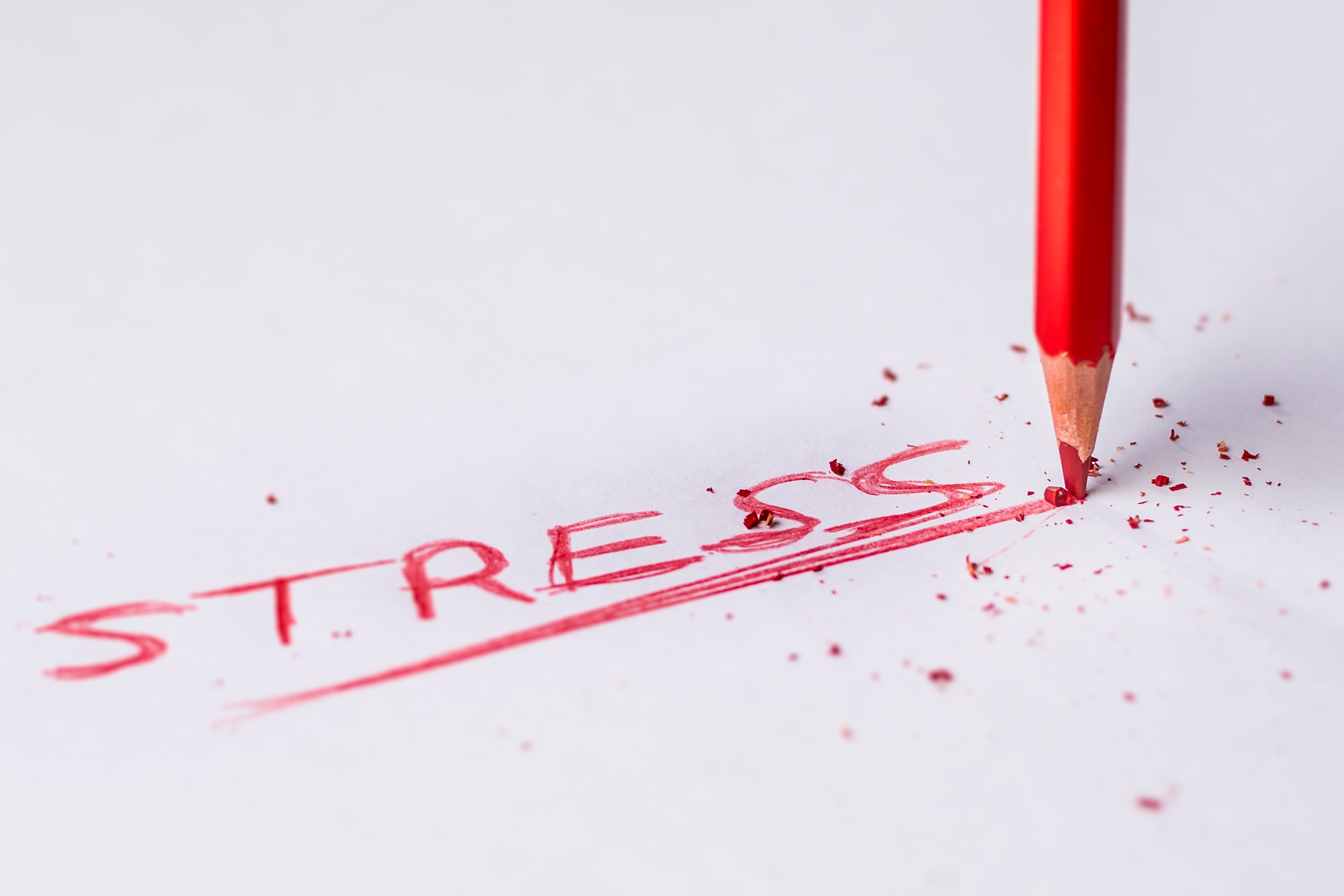Stress: What It Does To You

Stress can be the catalyst that breaks you. How do you check yours?
I thought I had it under control. I didn’t think I was letting it take over my body or my life. Turns out I was stifling and stuffing all along.
Stress will kill you much faster than you’d choose to die.
I see it in my work and in myself. July of 2018 was hell for me. My significant other was out of town and our home had an infestation of bed bugs. I didn’t cry or have a melt down; I did however crash with a weird visual migraine half blind, half aching, that numbed my entire left arm - it lasted 24 hours.
There are always physical implications of unchecked stress.
Seeking a source of chronic pain in the body can be like sifting through sand looking for a flawed grain. How do you know what the problem causers are? Is it habits? Repetitive motion? Injury? Illness? Food? Lifestyle choices? Relationships? Not having boundaries?
It’s all of the above and more. It’s Stress. The hormones that are released into our systems in times of high stress can help us overcome it, in acute situations. Chronic stress has physical implications on the body. It can affect the body systematically and bring with it havoc and mayhem in the form of discomfort or pain. It’s a tool that if left unchecked can create a toxic reaction. At the wrong time with too much stress it can change your chemistry, for our tiny humans - this can be detrimental to their growth but for those of us who are grown, it can leave you in a place of chronic pain or diseases.
For me, anxiety builds stress, and vice versa. I've spent years stuck in a cycle of stress that I'm finally working towards breaking.
How I combat Stress and Anxiety:
- Self care is important. I act like my own parent(which can lead to arguing with myself), if I would want my spouse or child to behave in a certain way, that is exactly how I tell myself to do something. I focus on building good habits and the long term reward over instant gratification.
- Goal setting, I stick with priorities and adjust as needed. It’s always a challenge to hold myself accountable. Maybe it is strong will power, but I believe that to be a limited resource. It’s more about revisiting the goal and keeping it top of mind. I allow myself to want it more than I'm scared of it so it's a driving factor not an inhibitor.
- Breathing; we all need air! Breath in long, deep diaphragmatic breaths daily. Hold breath for a few seconds, ¼ length of the inhale, then exhale twice the length of the inhale. I know I need to work on this more, because oxygen is necessary; however, sometimes breathing brings awareness to an area that needs work and that can be frustrating. There's lots of breath work options available. Try out priming (it's helping me overcome anxiety surrounding exercise).
- Acupuncture, acupressure, massage, Rossiter stretching, Yamuna body rolling, functional fitness training, bodywork, tension release, fascia management, infrared sauna, detox bathing, journaling...(ect). These tools are not used daily, but as often as I can remember to use them depending on where I’m at in my cycle, my autoimmune flares, and my mental state.
- Meditation - to adjust the mental state and not just mindfulness, find the type that works for you. I like autogenic training because to me it works like self hypnosis, where I found myself fighting, judging, and loathing mindfulness or breathing meditation, something about autogenic seems to work best for my mind. I also focus on thought fasting, what's one thought or belief I'd like to instill, I set a timer and continue to bring my awareness to that one thing for a short duration, 5-10 minutes.
- Exercise - though difficult with chronic pain or mental barriers, still doable. Try something new until you find something you like and believe you can be successful at. Find a trainer to check into your body and form. I am a fitness trainer and yet I still have a professional train me on functional movement. I’d encourage everyone to try functional training as it’s injury prevention. I built up core strength and stability using foam rolling actively. Yamuna body rolling allows me to stretch like yoga while participating in weight bearing exercise. Running had to go because it had a negative impact on my pelvic floor, my gait and my joints but walking is magic.
- Realistic to do lists and expectations. SMART goal setting is crucial. Time blocking is necessary. This one is the most challenging. I try to meet myself where I’m at. Meaning, if it’s a high pain day, the bare minimum for survival is necessary. Know you’re not where you want to be and that’s okay. Everything in life is a practice and any task you take on doesn’t get easier, you get better at it with continual practice and time. If you maintain a beginner's mindset and choose the life of a learner there’s always answers to seek, solutions available and avenues unexplored. Stress is inevitable, how you cope and react can change.
- I'm also working on cultivating a better spiritual practice. For me that means finding people to discuss my concerns and ideas with as well as reading literature that supports my pursuits for head space and a religious purpose.
Growth is hard, and effort doesn’t come easy.
I always believe in each human and their potential.
Love yourselves.
Apple out,
K. Sullivan
Resources:
The Deepest Well: Healing the Long-Term Effects of Childhood Adversity
by Burke Harris, Nadine